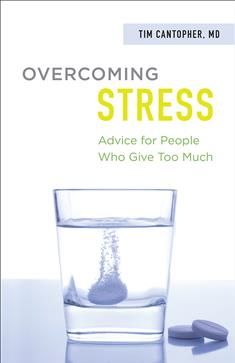
In today’s fast-paced world, stress and anxiety have become commonplace. The constant pressure to meet deadlines, fulfill responsibilities, and juggle various aspects of life can take a toll on our mental well-being. It is essential to understand how to effectively manage stress and anxiety to maintain a healthy and balanced lifestyle.
Understanding Stress and Anxiety
Stress is the body’s natural response to any demand or threat. While a certain level of stress can be beneficial in motivating us to perform better, an excessive amount of stress can have detrimental effects on our physical and mental health. Anxiety, on the other hand, is a feeling of unease, worry, or fear, often accompanied by physical symptoms such as rapid heartbeat and restlessness.
Identifying Triggers
The first step in overcoming stress and anxiety is to identify the triggers that lead to these feelings. It could be a specific situation, like public speaking or financial worries, or even a particular person. Keeping a journal or using mobile apps can help track patterns and identify recurring triggers. Once identified, steps can be taken to minimize or avoid these triggers whenever possible.
Healthy Lifestyle Choices
A healthy lifestyle plays a crucial role in managing stress and anxiety. Regular exercise, such as jogging, swimming, or practicing yoga, can help release endorphins, also known as “feel-good” hormones. Eating a balanced diet ensures that the body receives the necessary nutrients to maintain optimum mental health.
Getting enough sleep is equally important. Lack of sleep can increase stress levels and make it harder to cope with everyday challenges. Establishing a bedtime routine and creating a sleep-friendly environment can promote quality sleep and alleviate anxiety.
Effective Coping Mechanisms
Developing effective coping mechanisms can significantly reduce stress and anxiety levels. Deep breathing exercises, meditation, and mindfulness techniques can help calm the mind and focus on the present moment. Engaging in hobbies or activities that bring joy and relaxation can serve as a great stress reliever.
Additionally, seeking support from loved ones or professional therapists can provide a safe space to discuss and manage stress and anxiety. Talking about feelings and concerns can not only provide emotional relief but also result in finding practical solutions and different perspectives.
Limiting Digital Overload
In today’s digital age, constant exposure to social media and news can contribute to increased stress and anxiety. It is essential to establish a healthy boundary and limit screen time. Engaging in mindful tech use and taking breaks from screens can help recalibrate the mind and reduce stress levels.
Conclusion
Overcoming stress and anxiety is a continuous process that requires patience and self-care. By understanding the triggers, making healthy lifestyle choices, developing effective coping mechanisms, and limiting exposure to digital overload, individuals can take control of their mental well-being and lead a more fulfilling life.

